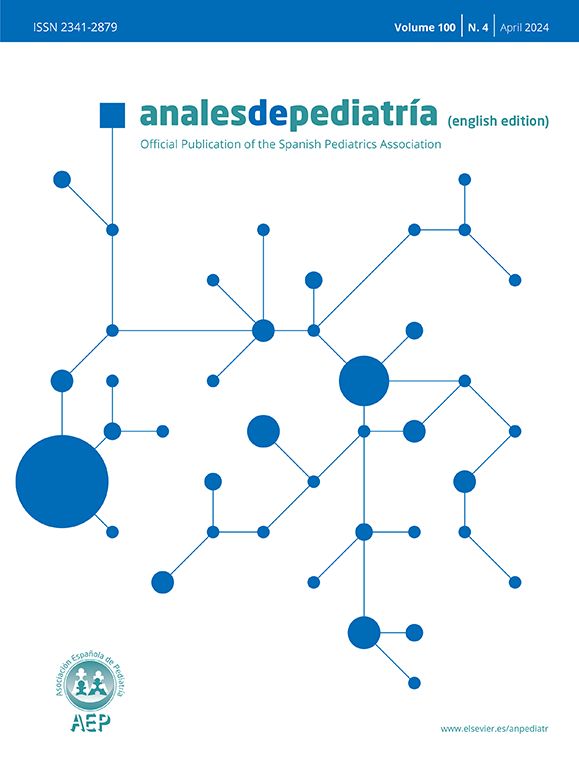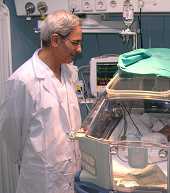The coronavirus disease 2019 (COVID-19) pandemic has had a significant impact on all aspects of our lives and has put health care systems worldwide to the test.1 One of the most important consequences has been the reduction of vaccination coverage rates in children and adolescents.1,2 In the wake of the pandemic, health care services were interrupted throughout the world, and Spain was not an exception. In the early months of the pandemic, there was a drastic drop in vaccination rates everywhere in the country.3 Confinement measures, the closure of health care facilities and the suspension of non-essential activities made it difficult to access health care services, including vaccination, especially for the most vulnerable groups, such as children aged less than 2 years.4 In addition, uncertainty and the fear of SARS-CoV-2 transmission made some people more reluctant to bring their children to primary care centres to get vaccinated.
On March 15, 2020, the Advisory Committee on Vaccines of the Asociación Española de Pediatría (AEP, Spanish Association of Pediatrics) issued an informational statement asking paediatricians to adapt vaccination programmes to local epidemiological trends at the municipality or primary care centre level, to adhere to protective measures against COVID-19 and to guarantee, at minimum, the vaccination of infants, especially at 2 and 4 months of age, and of immunosuppressed or chronically ill children and the members of their households and vaccination and postexposure prophylaxis of pregnant women.3 Later, on March 25, 2020, the Ministry of Health expanded the recommendation of prioritizing vaccination to all children aged less than 15 months, especially for vaccinations scheduled at ages 2 and 4 months and for the dose of measles, mumps and rubella (MMR) vaccine given at 12 months.
The decrease in vaccination rates during the pandemic raised significant concerns regarding the risk of a resurgence of vaccine-preventable diseases, globally and in Spain.3 Measles, pertussis and bacterial meningitis are but a few among the many diseases that may resurge if high vaccination rates are not achieved. These diseases, which had been under control until now, may have a serious deleterious impact on the health of the population, especially among young children.
The adopted measures allowed the recovery, to a large extent, of vaccination coverage rates after the confinement mandate was lifted.5 Data from the Ministry of Health of Spain from late 2020 showed that vaccination rates for the vaccines given in the first year of life had remained at adequate levels, although this was not the case for the booster dose against meningococcal C disease given at 12 months and the MMR dose given at 3 and 4 years. The coverage rates for vaccines given at 6 years and in adolescence continued the trend observed in previous years, with changing figures that were not always sufficient. In 2021 there was a decrease in the MMR coverage rate, especially for the second dose, which was at 91.9%, far below the minimum required to maintain the eradication of measles and prevent outbreaks of the disease (95%). The varicella vaccine coverage rate has not recovered either, decreasing to 93.1% for the first dose and to 87.6% for the second dose in 2021.5 It is worth noting that in these years there was an increase in vaccination rates in adolescents (meningococcal ACWY [MenACWY] and human poliovirus [VPH] vaccines). When it came to the vaccination of pregnant women, the increasing trend in vaccination against pertussis continued (Tdap vaccine), reaching 87% in 2021, while the increase observed in 2020 in vaccination against the seasonal flu (to 62.3%) was not sustained in 2021 (55.2%). It is also important to consider that there have been sizeable differences between autonomous communities and that the figures currently available only provide information at this population level and that there is a significant lag in their publication.5
Although vaccination coverage rates in Spain are higher compared to some neighbouring countries, rigorous surveillance is required, as the proliferation of fake news, which have been circulating in greater volume since the pandemic, can contribute to eroding the trust of families, which may threaten vaccination rates in Spain in upcoming years. The data above must be taken as a warning sign and underscore the need for more meticulous monitoring (with collection of data in real time and in smaller geographical areas) of vaccine acceptance by families.4
At this time, we think that, to prevent an increase in vaccine hesitance in the population, it is essential to design and implement broad, clear and accessible educational campaigns regarding the value of vaccines. These campaigns must address the common fears and doubts regarding vaccines and provide information based on evidence. In addition, they should make use of channels such as mass media, social media and, needless to say, health professionals, especially from the practices of paediatricians and paediatric nurses.
It is essential that the collaboration of paediatric providers and health care authorities at the national, regional and local levels as well as nongovernmental organizations be strengthened. Effective coordination will enable the implementation of coherent strategies, the sharing of improved and safer vaccination practices and the monitoring of vaccination coverage rates in real time.
The COVID-19 pandemic has called attention to the importance of research and innovation in the field of vaccinology, and it is essential to promote research and development of new vaccines, as well as the use of emerging technologies to improve the delivery and monitoring of vaccines at the national level (reliable vaccination records). These interventions can help strengthen vaccination programmes and guarantee the protection of the population in the future.
Vaccination is an essential tool to protect the health of the individual and the population. It is our collective responsibility to make a concerted effort to ensure high vaccination coverage rates in Spain. Only coordinated and decisive action can succeed in overcoming the challenges we face at present in order to build a healthier future for all.
FundingNo external financial support was received for the development of these recommendations (analysis of published data, debate, consensus and publication) beyond the logistical help provided by the AEP.
Conflicts of interestThe authors have no conflicts of interest to declare.





